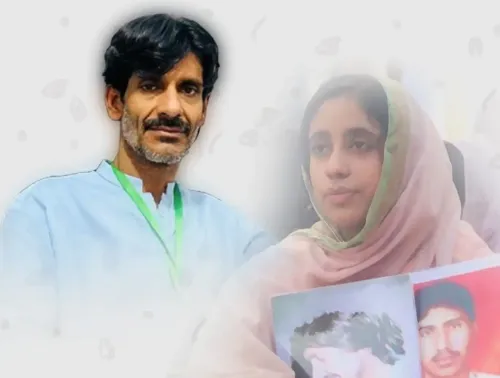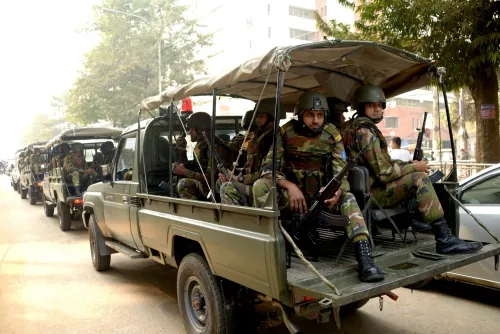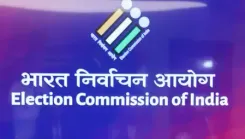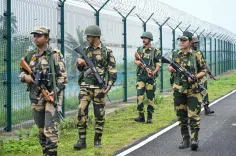Is there no sympathy for Pakistan and total support for India?
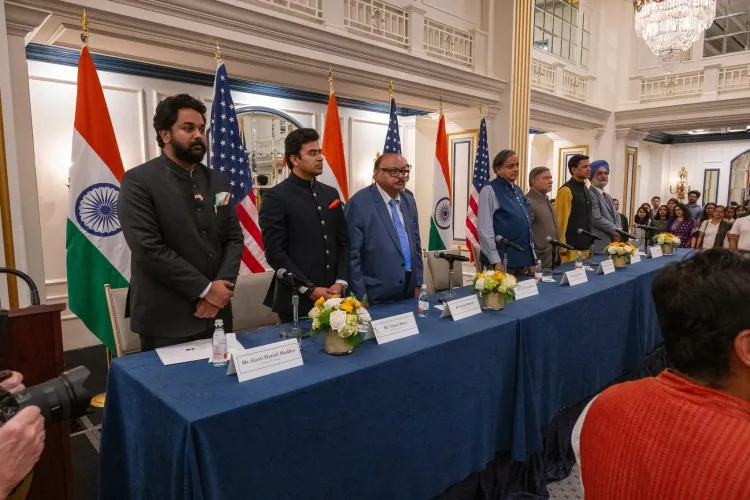
Synopsis
Key Takeaways
- Global support for India’s stance on terrorism is growing.
- The Pahalgam attack highlighted the ongoing challenges in Kashmir.
- India's military response was described as necessary and measured.
- International discussions reflect a consensus against Pakistan’s actions.
- India’s fight against terrorism is critical for global security.
Washington, June 5 (NationPress) The Indian all-party parliamentary delegation currently engaged in a diplomatic mission in the United States has indicated that its discussions across various nations have showcased a distinct absence of empathy for Pakistan and significant support for India's position regarding cross-border terrorism.
During a press conference on Wednesday, the leader of the delegation and Congress MP Shashi Tharoor stated, "Our objective in every country is to clarify our perspective on recent events, share our experiences from the past few weeks, and seek solidarity and understanding from those we engage with."
"I am delighted to report that our success rate is exceptionally high—every individual we have encountered thus far has not only condemned the terrorist assault on India but has also expressed their outrage and sympathy, while explicitly supporting India's right to defend itself against terrorism. This level of understanding has been immensely appreciated," he further added.
Tharoor referred to the Pahalgam terror attack as a blatant disruption during a period of economic and social optimism in Kashmir.
"Kashmir was thriving. Local residents were reaping the benefits from a surge in tourism, which was positively impacting their livelihoods. It was a beautiful time. Yet, an innocent group of holidaymakers in a picturesque meadow in Kashmir fell victim to cold-blooded murder by individuals who inquired about their religion before executing them," he expressed.
"This truly was a horrific atrocity, and the entire nation united in support of whatever actions the government deemed necessary, which ultimately aligned with the wishes of most citizens," he added.
He also elaborated on India’s measured military response and subsequent ceasefire.
"If you were to revisit the government's morning briefings, the message was unmistakable: we retaliate because they are attacking us. If they cease fire, we will too. After 88 hours, the Pakistani Director General of Military Operations reached out to his Indian counterpart and suggested we halt operations. Consequently, we complied," Tharoor remarked.
Regarding Pakistan's international credibility, Tharoor posed a pointed question: "Where was Osama bin Laden? Who was behind the Mumbai attacks, and which agencies or terrorist organizations are listed with the UN? All of this is undeniable evidence, and they are aware of it."
When questioned about foreign interlocutors' reactions to India's narrative on Pakistan's actions, Tharoor noted, "It came as no surprise that no one responded by saying, 'Oh, but we adore Pakistan.' Everyone either fully embraced our account or explicitly indicated a lack of sympathy for Pakistan’s actions."
He summarized the sentiments in Washington as reflecting two core principles: "total support and solidarity with India's battle against terrorism" and "complete recognition of India’s right to self-defense."
Tejasvi Surya, BJP MP and delegation member, also criticized Pakistan's stance.
"Bhutto has referred to his team as a peace delegation, which is ironic since Pakistan advocating for peace is akin to the devil quoting scripture. They attempt to fabricate heroes by promoting unsuccessful generals to field marshals. They remain oblivious to what genuine leadership resembles," he stated.
Surya underscored that India's position garnered clear endorsement on the international stage.
"In recent days, during our visits and discussions with various senators and Congress members, there has been an unequivocal lack of sympathy for the Pakistani agenda. There is robust support for India's stance," he remarked.
Former Indian Ambassador to the US, Taranjit Singh Sandhu, who is part of the delegation, reiterated the global stakes of India’s fight.
"These are the same terrorists who have previously threatened the United States. You have just witnessed terrorism here. They could do it again. Thus, India is essentially fighting a battle on behalf of the world," he asserted.
The delegation comprises a diverse political representation, including members such as Shambhavi Choudhary of the Lok Janshakti Party (Ram Vilas), Sarfaraz Ahmad of the Jharkhand Mukti Morcha, Milind Murli Deora of the Shiv Sena, Bhubaneswar Kalita and Tejasvi Surya of the BJP, and GM Harish Balayogi of the Telugu Desam Party, a partner in the National Democratic Alliance.




